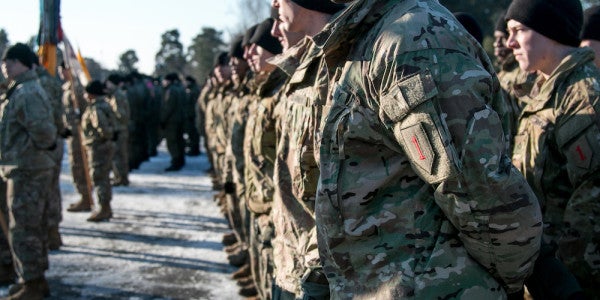The Real Questions Worth Asking To Assess The Army’s War Record
Gen. Frederick Kroesen commanded a rifle company in World War II, a battalion in Korea, and a brigade and a...

Gen. Frederick Kroesen commanded a rifle company in World War II, a battalion in Korea, and a brigade and a division in Vietnam. When he talks, I listen.
But I think his column in the May issue of ARMY magazine is seriously off base. He sets out to assess the track record of Army generals in recent years. But then he says that the two criticisms of the Army are that military minds are inflexible and that those same minds always fight the last war.
That puzzled me because while I think the Army has been slow to adjust, I don’t think that is the primary critique. Foremost, I think, is that the Army doesn’t seem to know how to win its recent wars. The Kroesen view is that the civilians are to blame for that. But I wonder if Army leaders really have taken the risks they should have.
Here are my two basic questions for any serious critique of the Army’s performance since 9/11:
Did the Army shirk the mission given it by the Bush Administration in Iraq? I ask this because Paul Bremer led a revolutionary effort to transform Iraq. The Army’s response was to say, Nah, we don’t do revolutions, we do stability. But “stability” was not their assigned mission. Personally, I think the assigned mission was nuts. But the proper military response would have been to address that, instead of simply redefining it into something the generals were comfortable with. They undercut Bremer.
Has the Army candidly and soberly examined its shortcomings in Iraq? For example, how did its actions help create the Iraqi insurgency? Why did it make rookie mistakes like putting all prisoners into giant camps, effectively making them Universities of Jihad? Why did it take so long to become militarily effective in Iraq—I would say that happened in the spring of ’07. That’s almost as long as we fought in World War II.
But you don’t need to listen to me. You can just turn a few pages of ARMY magazine to p. 19, where retired Lt. Col. Thomas Morgan writes that, “All our military seems to be able to do is ask for more troops and money. That is not the exit strategy we have been looking for. Today, the situation in Afghanistan is generally conceded to be worse than it has ever been.”
